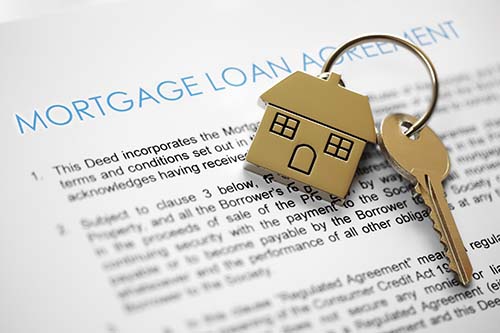On a Variable Mortgage? 3 Signs Your Mortgage Payment Is About To Increase
 For many homebuyers who are new to the market, it can be very comforting to be on a fixed rate mortgage where fluctuating interest rates cannot have an impact on your monthly payments. While a variable rate mortgage can sometimes lead to significant savings at the end of the day, there are a few ways you can tell if your monthly payment is on the upswing.
For many homebuyers who are new to the market, it can be very comforting to be on a fixed rate mortgage where fluctuating interest rates cannot have an impact on your monthly payments. While a variable rate mortgage can sometimes lead to significant savings at the end of the day, there are a few ways you can tell if your monthly payment is on the upswing.
An Increase In Your Home’s Value
A marked increase in a home’s value is ideal for most homeowners who consider their home an important investment. However, the downside of an increase in the price of real estate is that your property taxes will probably be bumped up along with it. According to Josh Moffitt at Silverton Mortgage, “If your home value increases because of market conditions, taxes will follow, and it will cost more to insure the home.” In order to determine if a higher payment is on the horizon, you may want to take a look at the listings in your neighborhood.
A Miscalculation
Most people hope that a re-assessment of the value of their home will lead to a bump in its price, but if your monthly mortgage payments were calculated at a specific time during the transaction, this bump may mean a higher monthly payment for you. If there was some overlap between the assessment and the property transfer, or other fees were included in your payment, your tax professional should be able to advise you on the best course of action you can take come tax time.
Insurance Renewal Is Up
In the event that the homeowner’s insurance on your home is about to expire, there’s a possibility that you’ll be paying a bit more following renewal. Instead of leaving this to chance, ensure that your insurance company is communicating with you and keeping you abreast of changes. After all, while insurance is important to protect your investment, you have the option of looking into other insurance providers who may be able to give you a better rate.
It can be hard to plan for the increase in rates that can go along with a variable rate mortgage, but if your insurance is up for renewal and the value of the homes in your area has increased, a higher monthly payment will likely follow. Contact your trusted mortgage professional for more information.

 Whether you’re considering a second mortgage to consolidate your debt or complete some home renovations, there can be a lot that goes into making this financial decision. Because a second mortgage is a loan that goes against the equity you currently have on your property, this can be a risk to the ownership of your home. If this is an option you’re seriously considering, here are some basics to know before deciding to on this route.
Whether you’re considering a second mortgage to consolidate your debt or complete some home renovations, there can be a lot that goes into making this financial decision. Because a second mortgage is a loan that goes against the equity you currently have on your property, this can be a risk to the ownership of your home. If this is an option you’re seriously considering, here are some basics to know before deciding to on this route. Purchasing a home can be one of the most exciting and stabilizing investments of your life, but because of the expense, there are many ways you may be spending more money than you should. If you’re wondering about the financial soundness of your home investment, here are some things to consider before putting anything down.
Purchasing a home can be one of the most exciting and stabilizing investments of your life, but because of the expense, there are many ways you may be spending more money than you should. If you’re wondering about the financial soundness of your home investment, here are some things to consider before putting anything down.